
Liquor bottle caps are an essential component of liquor bottles, playing a crucial role in preserving the quality and flavor of the liquor. From traditional cork stoppers to modern screw caps, the variety of liquor bottle caps available is vast, each designed to meet specific needs and preferences. This comprehensive guide explores the different types of liquor bottle caps, their materials, and the latest innovations in the industry, helping you make an informed decision when selecting the right cap for your spirits bottles.
Types of Liquor Bottle Caps
Screw caps are a popular choice for both liquor bottles and wine bottles. They are known for their convenience and ease of use. Designed to be durable and provide a tight seal, screw caps ensure that the liquor remains fresh and uncontaminated. These caps are commonly used for spirits bottles and plastic bottles due to their secure fit and reliability. The screw mechanism makes it easy to open and close the bottle, making them a practical option for both consumers and manufacturers. Screw caps also offer excellent protection against oxidation, ensuring that the liquor retains its quality over time.
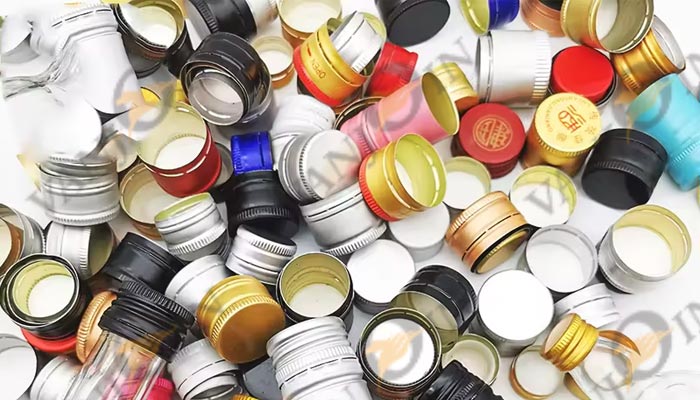
Cork stoppers have been traditionally used for sealing wine and spirits bottles. Available in natural and synthetic varieties, corks offer a classic look and a reliable seal. They are great for aging wines and maintaining the integrity of spirits. Natural corks are harvested from the bark of cork oak trees, making them an eco-friendly option. Synthetic corks, on the other hand, are made from materials like polyethylene and offer a more consistent performance. Both types of cork stoppers can be easily inserted and removed, making them a preferred choice for many liquor enthusiasts.
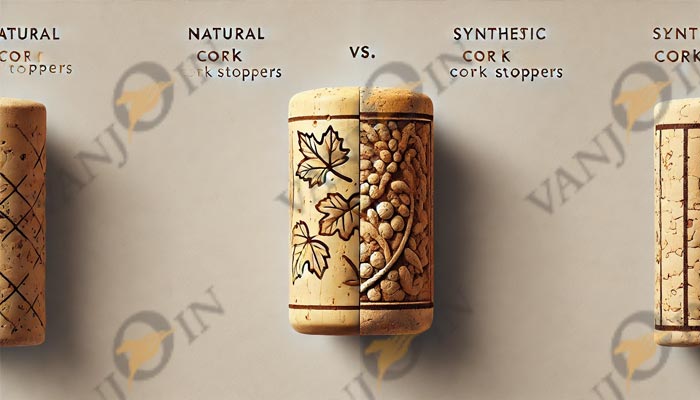
T-Top corks combine the benefits of cork stoppers and screw caps. They are easy to insert and remove, providing a secure seal while adding a touch of elegance to the bottle. T-Top corks are often used for premium spirits bottles, offering both functionality and aesthetics. The T-shaped design allows for easy handling and adds a distinctive look to the bottle. These corks are typically made from a combination of natural or synthetic cork and a plastic or wooden top, providing a durable and attractive sealing solution.
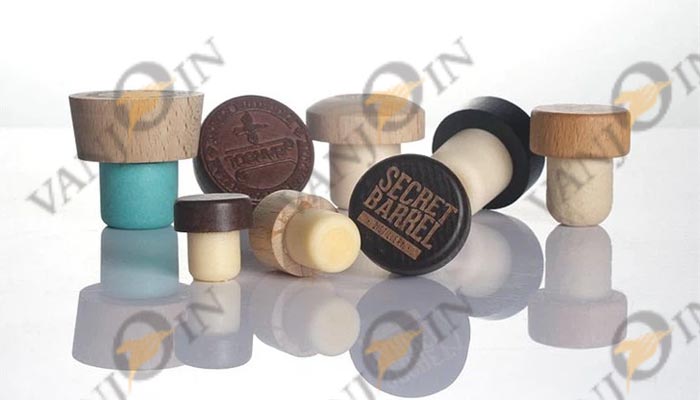
Glass Stoppers
Glass stoppers are a modern and stylish option for sealing liquor bottles. They provide a unique look and are often used for high-end spirits. Glass stoppers ensure a tight seal and are durable, making them a popular choice for collectors and connoisseurs. The use of glass stoppers adds a luxurious touch to the bottle, enhancing its visual appeal. Additionally, glass stoppers are reusable and environmentally friendly, making them a sustainable choice for eco-conscious consumers.
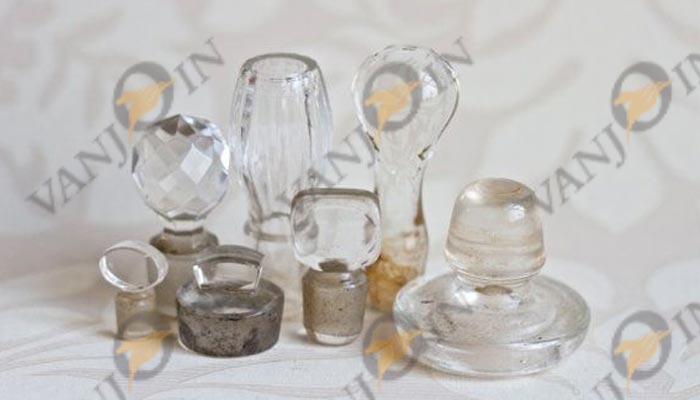
Plastic Caps
Plastic caps are commonly used for juice bottles and plastic bottles. They are lightweight, cost-effective, and provide a secure seal. Plastic caps are available in various designs, including spouts and pour spouts, making them versatile for different types of containers. These caps are designed to be easy to open and close, offering convenience for everyday use. Plastic caps are also durable and resistant to breakage, making them suitable for a wide range of products, including spirits bottles.
Material Comparison
Cork vs. Synthetic Cork
Corks, whether natural or synthetic, are known for their ability to preserve the flavor and quality of liquor. Natural corks are biodegradable and have a lower environmental impact compared to synthetic corks. They also allow a small amount of oxygen to interact with the liquor, which can be beneficial for aging. Synthetic corks, on the other hand, offer durability and a consistent seal, reducing the risk of cork taint. They are also easier to produce and more affordable, making them a practical choice for many manufacturers.
Metal vs. Plastic
Metal caps, often made from aluminum or tin, are used for their durability and tight seal, making them ideal for spirits bottles. They provide excellent protection against contamination and oxidation, ensuring the liquor retains its quality. Plastic caps, while less durable than metal caps, are lightweight and cost-effective. They are suitable for a variety of bottles and containers, offering versatility and convenience. The choice between metal and plastic caps depends on the specific requirements of the product and the preferences of the manufacturer.
Environmental Impact
Choosing eco-friendly materials for liquor bottle caps can help reduce environmental impact. Glass stoppers and natural corks are more sustainable options compared to plastic caps. Glass stoppers are reusable and recyclable, while natural corks are biodegradable and harvested from renewable resources. Manufacturers can also consider using recycled materials for plastic and metal caps to minimize their environmental footprint. The adoption of eco-friendly cap solutions reflects a growing trend towards sustainability in the liquor industry.
Innovations in Bottle Cap Design
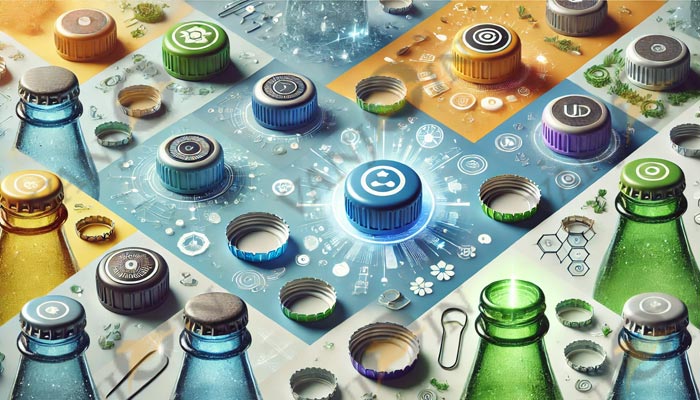
Technological Advancements
Recent innovations in bottle cap design include smart caps with sensors that track the bottle’s contents and UV light caps that protect the liquor from harmful UV rays. These advancements offer added convenience and protection for consumers. Smart caps can monitor factors such as temperature, humidity, and tampering, providing valuable information to both consumers and manufacturers. UV light caps help extend the shelf life of the liquor by preventing degradation caused by exposure to light. These innovative cap designs enhance the overall user experience and ensure the quality of the product.
Eco-Friendly Solutions
Eco-friendly cap solutions are gaining popularity, with options such as biodegradable corks and recyclable materials. These sustainable designs help reduce waste and environmental impact. Biodegradable corks decompose naturally, minimizing their impact on the environment. Recyclable materials, such as aluminum and certain plastics, can be reused in the production of new caps, promoting a circular economy. The shift towards eco-friendly cap solutions aligns with the growing consumer demand for sustainable products and practices.
Commercial Aspects
Key Manufacturers and Suppliers
Leading manufacturers like Vanjoin carry a wide range of liquor bottle caps, including cork stoppers, T-Top corks, and glass stoppers. Their products are designed to meet the needs of various spirits bottles, ensuring quality and durability. Vanjoin is known for its innovative solutions and commitment to sustainability, providing high-quality closures for the spirits industry. Businesses can rely on reputable suppliers like Vanjoin to source the best caps for their products.
Market Trends and Consumer Preferences
Market trends indicate a growing preference for eco-friendly and innovative bottle caps. Consumers are looking for products that offer both functionality and aesthetics. The demand for sustainable and visually appealing caps is driving manufacturers to develop new designs and materials. Customization options, such as branding and unique designs, are also becoming increasingly popular, allowing brands to differentiate their products in a competitive market. Staying abreast of market trends and consumer preferences is essential for businesses to remain relevant and meet the evolving needs of their customers.
Customization Options
Brands can customize bottle caps to align with their identity and enhance the overall look of their products. Customization options include different materials, colors, and designs. For example, a premium spirits brand may opt for a custom-designed T-Top cork with a wooden top and embossed logo, while a contemporary brand might choose a sleek glass stopper with a minimalist design. Customization allows brands to create a distinctive look that resonates with their target audience and strengthens brand recognition. Various accessories for liquor bottle caps, such as dust caps, snap caps, and LED pourers, are also available to further enhance the product.
Importance of Sealing
Preserving Quality and Flavor
A good seal is essential for preserving the quality and flavor of liquor. It prevents contamination and oxidation, ensuring that the liquor remains fresh and enjoyable. The right bottle cap can protect the contents from external factors such as air, moisture, and light, which can degrade the quality of the liquor. A well-sealed bottle also helps maintain the aroma and taste, providing consumers with a premium drinking experience.
Preventing Contamination and Spillage
Proper sealing of liquor bottles is crucial for preventing contamination and spillage. A secure cap ensures that the contents are protected from external contaminants, such as dust and bacteria. It also prevents accidental spills, which can lead to product loss and potential hazards. A reliable seal is particularly important for high-value spirits, where maintaining the integrity of the product is paramount.
Legal and Regulatory Considerations
Proper sealing of liquor bottles is also important for meeting legal and regulatory standards. It ensures that the product is safe for consumption and complies with industry regulations. Many countries have strict guidelines for packaging and sealing alcoholic beverages to prevent tampering and ensure consumer safety. Adhering to these regulations is essential for businesses to avoid legal issues and maintain their reputation.
Selection Criteria for Businesses
Factors to Consider
When choosing bottle caps, businesses should consider factors such as material, cost, brand alignment, and functionality. The right cap can enhance the product’s appeal and ensure its quality. Businesses should assess their specific needs and priorities, such as durability, sustainability, and aesthetics, to make an informed decision. Consulting with suppliers and industry experts can also provide valuable insights into the best options available.
Cost Analysis
Conducting a cost analysis can help businesses determine the most cost-effective options without compromising on quality. Comparing different types of caps and their prices is essential for making an informed decision. Businesses should consider the long-term benefits and potential savings associated with each type of cap, such as reduced spoilage and improved consumer satisfaction. Investing in high-quality caps may have a higher upfront cost but can lead to significant savings in the long run.
Brand Alignment and Aesthetics
Choosing a cap that aligns with the brand’s identity and enhances the bottle’s appearance is crucial. A well-designed cap can make a significant difference in the product’s marketability. For example, a luxury spirits brand may opt for a sophisticated glass stopper to convey elegance and exclusivity, while a casual brand may prefer a colorful plastic cap to appeal to a younger audience. The cap should complement the overall packaging and branding strategy, creating a cohesive and attractive product.
Conclusion
Liquor bottle caps are an essential component of liquor bottles, playing a vital role in preserving quality and enhancing the product’s appeal. With various types and materials available, businesses can choose the best cap to meet their needs. Innovations and eco-friendly solutions are paving the way for the future of liquor bottle caps. By understanding the different options and selecting the right cap, businesses can ensure the quality and success of their products.